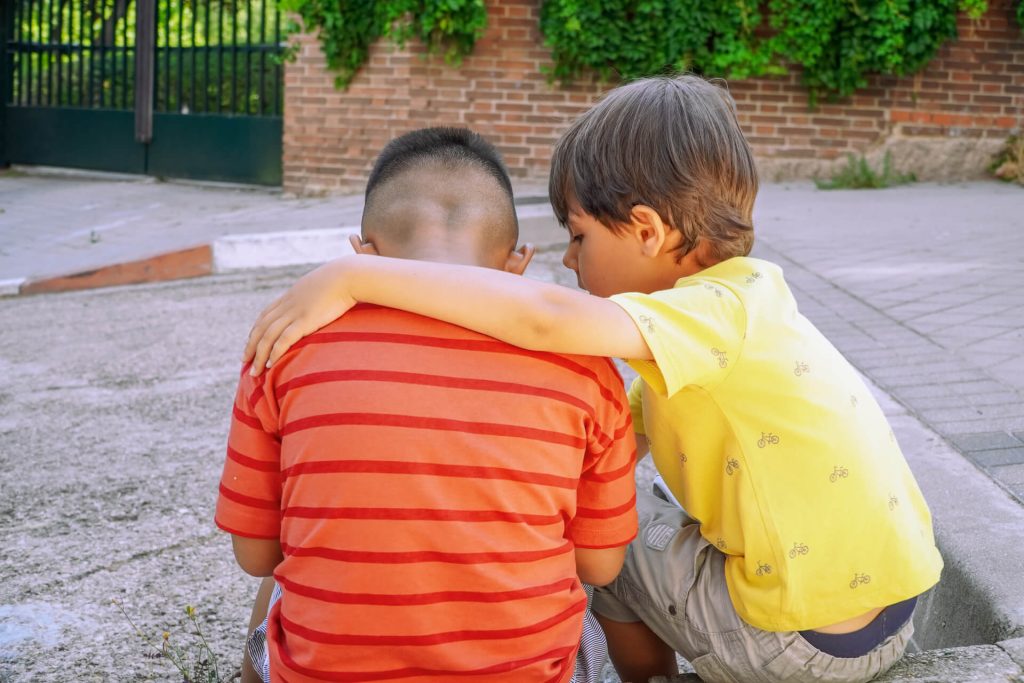You have likely come across articles about children in Japanese schools who clean the classroom together with their peers and prepare and serve lunch to their classmates, or photographs of playful little ones from Scandinavian countries, covered in mud from head to toe, learning through play outside in nature, eating apples from a shared basket in a 'forest kindergarten.'
Research has shown that when early education takes place in a high-quality environment where learning and play are combined, it has an exceptionally positive impact on children's overall development as well as their future opportunities.
Buckle up, as we take you on a brief journey through specific school systems around the world to discover what distinguishes each of them, as well as the virtues and values that children in such systems have the opportunity to adopt.
Practical skills in multilingual Switzerland
The educational philosophy in Switzerland is characterized by flexibility, multilingualism, and a commitment to quality, with an emphasis on practical skills. The Swiss dual education system integrates academic and vocational education, allowing students to develop a wide range of skills and knowledge.
This approach encourages students to gain practical experiences while simultaneously advancing in academic areas. The focus on multilingualism enables students to communicate in multiple languages,which opens the doors to global opportunities and intercultural understanding.
Finland: Individualized Approach
Finland is known for fostering development and respecting students as individuals. Teachers in Finland strive to minimize any form of enforced competitiveness and rivalry. Instead, among young Finns, educators create an environment that encourages creativity and self-expression. Test results are not the ultimate goal of student success.
The Finnish education system began enhancing the status of teachers in the 1980s, which led to a transformation of the entire educational approach.
Japan: Work Together with Others and Give Your Best
Japanese preschool and school institutions are often characterized by a high degree of discipline and respect for authority. Students are responsible for cleaning their classrooms and school areas, which promotes a strong sense of cooperation and a relationship toward shared ownership.
These activities promote values such as caring for others, giving their best, perseverance, respecting elders, understanding their role in a group, and teamwork. This approach not only helps maintain cleanliness but also fosters a sense of community and responsibility among students.
Denmark: Problem Solving in a Creative and Friendly Atmosphere
The educational approach in Denmark avoids ranking in classes and formal tests. Instead, children work in groups and learn to make established methods of working more creative.
Teachers are addressed by their first names, creating a friendly and open atmosphere. The emphasis is on problem-solving rather than memorizing facts. This system encourages students to develop critical thinking, creativity, and self-confidence, while also learning to value collaboration and diverse perspectives.
South Korea: Technology Proficiency, Respect for Elders, and Work Ethic
Unlike the previously mentioned Denmark, the South Korean educational system is known for its high academic standards and intense approach to learning. Students are encouraged to achieve high academic results through rigorous study programs and regular testing. In addition to academic success, the South Korean education system promotes values such as work ethic, discipline, and respect for elders.
Educational institutions in South Korea also emphasize the importance of technological advancement and innovation, preparing students for success in a highly competitive global environment.
Germany: Practical Work Experience
The German education system is known for its structure and rigor, with a special focus on practical skills and vocational education. The dual education system, similar to the Swiss model, combines theoretical instruction in schools with practical work experience in companies.
This approach allows students to acquire not only theoretical knowledge but also practical skills which are immediately applicable in the job market. Through this system, German students develop responsibility, work habits, and the skills necessary for success in their future careers.
Sweden: A Society Where Everyone Contributes with Their Knowledge
The Swedish education system is based on respect for human rights and the fundamental democratic values upon which Swedish society is built. These values include democracy, solidarity, and equality. The educational approach in Sweden promotes equality, inclusion, and respect for every individual. All students participate in a good and inclusive learning environment, where they are encouraged to develop critical thinking, collaboration, and creativity.
Children and youth who need special assistance receive it from an early age, enabling them to develop their full potential. Teachers, instructors, and other staff in the education system possess high qualifications and skills, ensuring quality education for all. Education is something in which everyone should succeed and in which every individual should be able to participate, both now and in the future.
Singapore: High Standards and Continuous Learning
The education system in Singapore is known for its efficiency and high standards. The Singaporean approach to education emphasizes achieving academic excellence through rigorous standards and intense effort.
However, in addition to academic skills, the Singaporean education system also promotes values such as discipline, responsibility, and continuous learning. Students are encouraged to develop critical thinking and innovation, preparing them for the challenges of a globalized world.
Australia: Diverse Extracurricular Activities and Multiculturalism
The Australian education system is distinguished by its flexibility and inclusivity. Schools in Australia promote a holistic approach to education, valuing a balance between academic skills, sports, arts, and social activities.
Students are encouraged to develop their interests and talents through a wide range of extracurricular activities. In addition, Australian schools emphasize the importance of multiculturalism and understanding different cultures, contributing to the creation of an open and tolerant society.
Brazil: Inclusion and Equality
The Brazilian education system strives to promote social inclusion and equality. Programs such as full-time schools (escolas de tempo integral) provide students with extended time in school, where they have access to additional educational and cultural activities.
These schools promote values such as solidarity, civic responsibility, and environmental awareness. In Brazilian schools, the importance of teamwork and community is often emphasized, and students are encouraged to actively participate in social projects and volunteer activities.
Step Towards a Better Future: Innovations in the Serbian Education System
Serbia is at an important crossroads in its education system, aligning itself with global trends in education reform. The introduction of the program 'Virtues and Values as a Life Compass' demonstrates a commitment to enhancing not only academic but also emotional and social development for students. In this way, Serbia joins countries like Finland and Denmark, which recognize the importance of a balanced approach to education, where the emphasis is placed on social awareness, empathy, practical skills, and responsibility.
The right time for the implementation of values and virtues is also evidenced by the fact that similar initiatives are being launched in neighboring countries in the region. Although we have much work ahead, here is a positive example that shows progress is being made. We hope that changes will occur in practice, not just in theory, so that we can get closer to the models from the West and the East.
It would be ideal if we could take the best from each of these systems and apply them in our educational institutions. In this way, we would ensure that every generation grows up in an environment that supports, inspires, and prepares children for a successful life.
By combining these virtues and values, we can create an educational system that not only educates but also shapes responsible, empathetic, and well-rounded members of society—citizens ready to face the challenges of the future and participate in building a better world.





